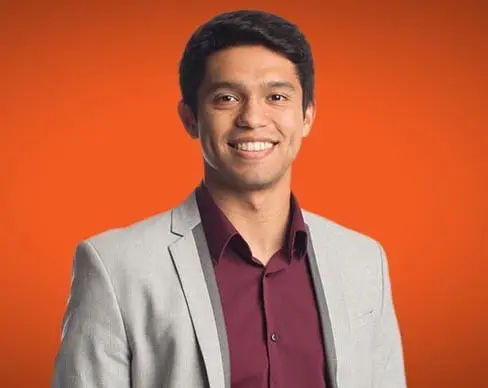Gerson Galdamez is a PhD student in Gerontology at the University of Southern California. He is a part of the Health Policy Research Scholars Cohort 2017.
Before we begin, tell us a little bit about yourself and what your research interests are?
My name is Gerson, pronounced “Herson”. I grew up in both Compton and Buena Park, CA and currently study Gerontology as a PhD student at the University of Southern California. My research interests include elder abuse interventions, prevention, and overall security in later life.
What’s the story behind why you’re doing what you’re doing?
I was raised by a group of older adult grandmas, aunts, and uncles while my mom worked. We were all caregivers for my great-grandmother, and from a very young age, I witnessed the precarity of growing old in America. Fast forward a few years: I learned how to play the violin and started performing for senior centers in my area. Conversations with those residents—some of whom were victims of truly disturbing and heartbreaking abuse—compelled me to choose a Human Aging and Development major over a Music major at USC. I got involved as a research volunteer with the Secure Old Age lab and decided to pursue PhD research directly out of undergrad.
Tell us about a project you are currently working on that you are excited about?
I’m doing a national-scale study on elder abuse interventions. Hundreds of elder abuse multidisciplinary teams exist across the U.S., but there is no knowledge of what they look like, how they operate, or how effective they are. One important goal of the study is to identify a few flagship teams that we can use to tell policy makers “this is a good model for investing funding in fighting elder abuse.”
For people unfamiliar with your research area, what is one piece of information you think is important for them to know?
We estimate that 1 in 10 older adults in the U.S. are victims of some type of abuse (physical, emotional, sexual, financial, neglect), but this is only what is reported. When researchers use this number, this could be only the “tip of the iceberg.” There could be a multitude of cases that go unreported for the remainder of an older adult’s life. Addressing these cases is extremely complicated and requires social services, health services, and legal services to work together in a multidisciplinary team (hence, our research project above).
Who is a researcher you admire and why?
I admire any researcher who is able to successfully walk in both the research and policy worlds, but I’ll name my mentors Kathleen Wilber and Zachary Gassoumis. Also, Reggie Tucker-Seeley, who just joined the Leonard Davis School of Gerontology, has been an inspiration for me.
How has being an HPRS Scholar helped you during your time as a doctoral candidate?
Being around other minority PhD students is a breath of fresh air. The HPRS Scholars have become a group of reliable friends for discussing policy issues, figuring out tricky research methods, and working through the challenges of a PhD program. The HPRS program has built my skills as a researcher, policy influencer, and communicator through online lectures, discussions, and policy presentations. These invaluable skills will follow me beyond my PhD program.
In the RWJF HPRS program we have worked with you to help you think further about using your research to develop policy. If you could use your research to change any policy, what policy would it be?
The Elder Justice Act (EJA) of 2010 was a landmark piece of legislation meant to address elder abuse. It contained language in support of various elder abuse intervention and prevention strategies. Unfortunately, Congress has not appropriated funding to the EJA, so nothing has substantially changed. My research would provide a more concrete understanding of what needs to be funded to fight elder abuse.
Ok, here’s a fun question to wrap things up. If you could visit any place in the world, where would you choose to go and why?
I would visit Mallorca, Spain. I love rock climbing, and it would give me a chance to climb in the birthplace of “deep-water soloing”, where one climbs over a body of water unprotected. If you fall, you fall into the water, so it’s fun. Maybe I’ll get to meet Chris Sharma, too.

